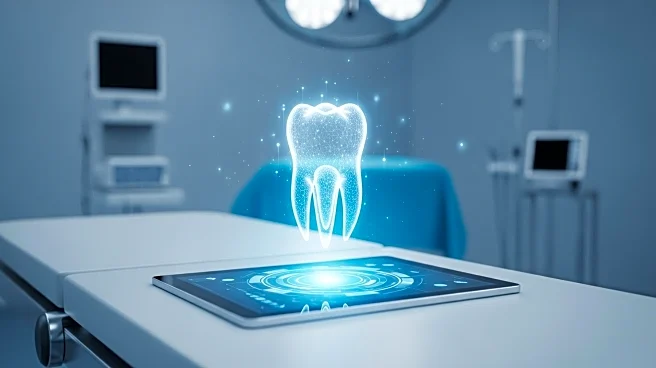What's Happening?
A pilot study conducted at the Royal National ENT and Eastman Dental Hospitals has explored the use of augmented reality to improve the patient consent process in oral surgery. The study involved 28 patients who used Microsoft HoloLens technology to view holographic images related to their treatment. The results showed that 96% of participants preferred the holographic images over traditional CBCT images, and the majority reported increased confidence in decision-making.
Why It's Important?
The integration of augmented reality in healthcare represents a significant advancement in patient education and consent processes. By providing patients with more interactive and understandable visualizations of their treatment, augmented reality can enhance healthcare literacy and empower patients to make informed decisions. This technology has the potential to improve patient engagement and satisfaction, leading to better health outcomes and more effective communication between patients and healthcare providers.











